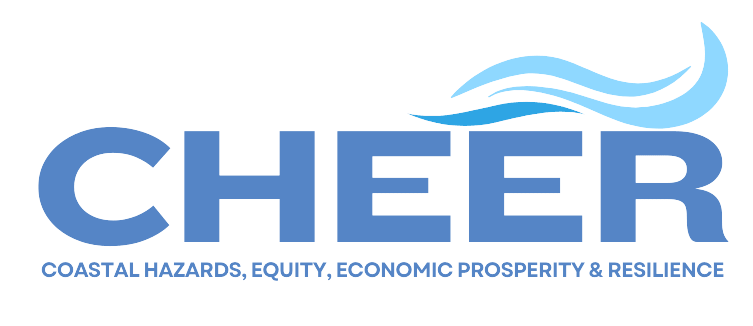NSF COPE: CHEER

Coastal Hazards, Equity, Economic Prosperity & Resilience Hub (CHEER) is an NSF-funded Coastlines and Peoples Hub led by the University of Delaware and their partner institutions.
CHEER’s goals are to:
(1) Identify, explain, and quantify the interactions and tradeoffs among the coastal community goals of equity, economic prosperity, and resilience to hazards,
(2) Develop methods to model long-term hurricane hazards in a way that accounts for climate change and integrates wind, rain, storm surge, and wave hazards, and
(3) Develop a computational tool to help design policies that can achieve sustainable equity, economic prosperity, and coastal resilience in the context of climate change.

CHEER Evaluation Overview
The CHEER Evaluation plan uses an improvement-oriented evaluation strategy to provide both formative and summative evaluation feedback across the Hub’s research, engagement, and education efforts.
Evaluation includes bibliometric analysis of publications looking at citation-based metrics of impact, as well as co-authorship analysis investigating various forms of collaboration and team science.
Evaluation includes surveys and focus groups with community participants to capture patterns of collaboration, knowledge transfer, and gauge impact on their disaster preparedness efforts.
Impact interviews will also be conducted with key end users to determine the extent to which project results and outputs are adopted by end users, as well as their intentions for future use.
Evaluation includes student surveys investigating training opportunities, impacts on relevant student knowledge, skills, and abilities, career preparation, and career outcomes for project alumni.